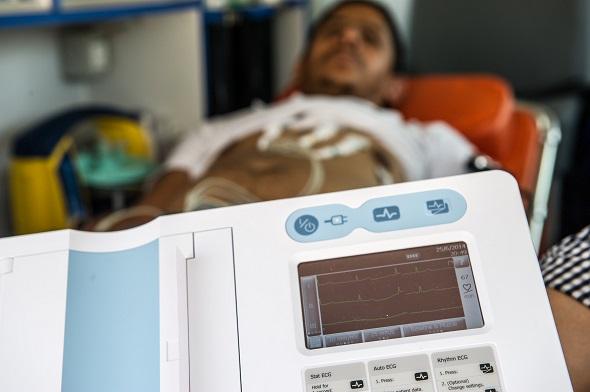
It can be hard enough when you suffer a medical emergency while at home. But if you’re traveling — especially internationally — a medical emergency can get complicated quickly. Whether you fall sick or get into an accident, you can find yourself in unknown territory, so to speak. That’s why it’s important to plan for a medical emergency while traveling outside the United States. Here are six tips that can help:
It can be hard enough when you suffer a medical emergency while at home. But if you’re traveling — especially internationally — a medical emergency can get complicated quickly. Whether you fall sick or get into an accident, you can find yourself in unknown territory, so to speak. That’s why it’s important to plan for a medical emergency while traveling outside the United States. Here are six tips that can help:
1. Before leaving, review your health insurance. Are you covered abroad? Some carriers do not cover medical problems in other countries, and if you have a medical emergency, the foreign country may require you to pay all medial bills up front before you can leave the country. Consider traveler’s gap coverage. It’s inexpensive and usually covers whatever medical costs your health insurance plan does not cover.
2. Buy International travel insurance. Compared to the cost of your travel itself, purchasing international medical insurance to cover you while overseas is not expensive.
3. Before your trip locate adequate health care providers and facilities in the country or countries you are traveling to. This is even more critical for traveler’s with preexisting or complicated medical issues. In addition to identifying quality health care providers, travelers should know their blood type and current medications (including generic names), ideally in the local language.
4. Consider registering with agencies such as the Blood Care Foundation. These agencies attempt to rapidly deliver reliable blood to members while abroad. A motor vehicle accident or trauma could result in need for a blood transfusion. Not all countries have accurate, reliable, and systematic screening of donated blood for infectious diseases. Avoid blood transfusions if possible, particularly in developing countries. If a blood transfusion is necessary you should make every effort to ensure that the blood has been screened for transmissible diseases. This can be difficult to plan for in advance. But if you have located medical services before traveling it will increase your chance of obtaining higher quality care.
5. Consider air ambulance services. An air ambulance service may be needed if you can’t be transported by commercial means and extensive or urgent medical attention is needed. Sometimes this coverage may be added to an existing health insurance policy.
6. Be sure your emergency information is easy to find. You might want to keep your emergency contact information with your passport as this is the first place foreign police often look. If you don’t speak the language in the country you are visiting, use a translation book to write down key phrases you may need to communicate in a medical emergency. Do not keep your government issued identification numbers such as social security and drivers license in the same place. By keeping confidential information separate from emergency information you decrease your exposure to identity theft if documents are stolen.
Being prepared often helps make a difficult situation much easier and less stressful.








